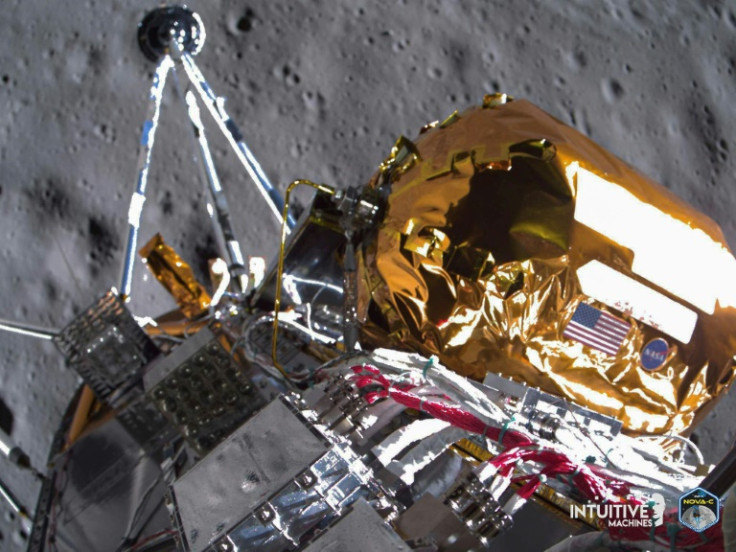
The lunar lander that touched down on the Moon last week is still working via solar power, the private company behind the historic mission said Wednesday, after announcing the day before that its batteries were on the verge of running dry.
The update heralds the final stages in a mission that has marked the first ever Moon landing by a private company, but also witnessed numerous problems including when the lander tipped over sideways on reaching the surface, where it continues to lie on its side.
Texas-based Intuitive Machines had earlier estimated there were about 10 to 20 hours of battery life left. It has said it intended to collect data from the spacecraft, named Odysseus, "until the lander's solar panels are no longer exposed to light."
On Wednesday, Intuitive Machines said "Odysseus continues to generate solar power on the Moon, allowing flight controllers to continue gathering data from the south pole region in furtherance of the IM-1 Mission objectives."
NASA is planning to return astronauts to the Moon later this decade, and paid Intuitive Machines around $120 million for the mission, as part of an initiative to delegate cargo missions to the private sector and stimulate a "lunar economy."
The uncrewed Odysseus carries a suite of NASA instruments designed to improve scientific understanding of the lunar south pole, where the space agency plans to send astronauts under its Artemis program later this decade.
While the solar panels are keeping the lights on for now, they are not in the ideal position due to the craft tipping over.
But the mission "is a success from NASA's point of view," the space agency's chief, Bill Nelson, told reporters Wednesday.
"We are in the sixth day of what was planned as an eight day mission. And we're still receiving data. And we're getting data from all six of our instruments," he said.
The United States, along with international partners, want to eventually develop long-term habitats on the south pole, harvesting ice there for drinking water -- and for rocket fuel for eventual onward voyages to Mars.
In addition to being the first ever successful private lunar landing, Artemis also marks the first return by the United States to the Moon in five decades.








